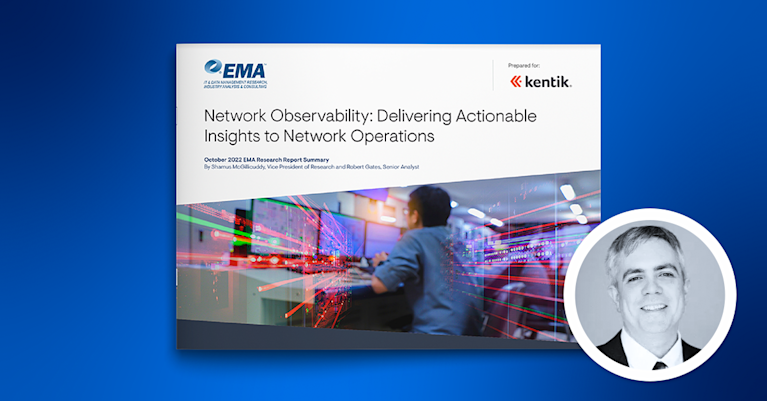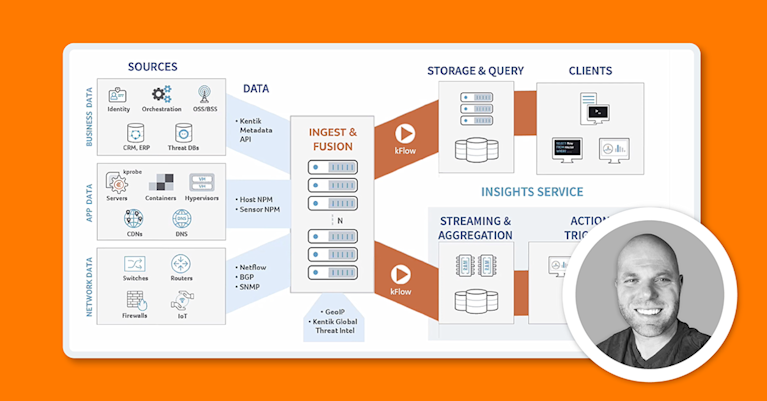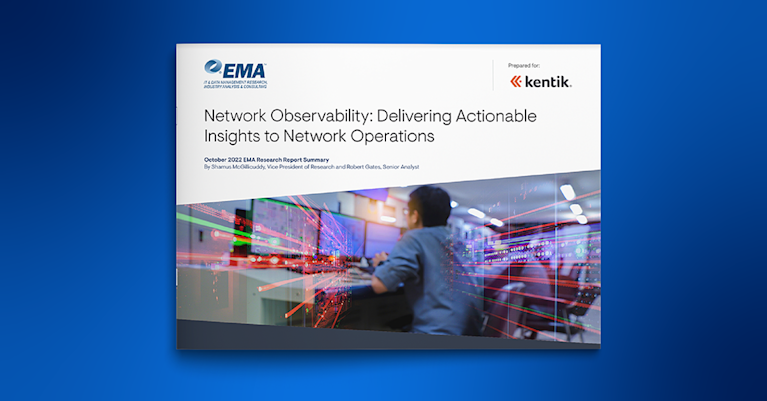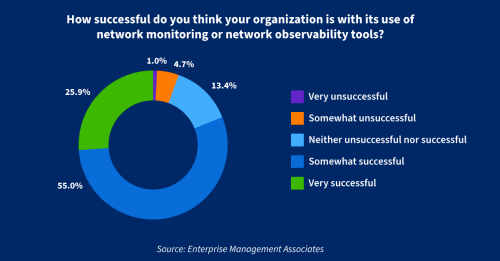
Summary
The concept of network observability has taken hold in the market. But how are users adopting this technology, and what gaps remain? This article provides a taste of the user survey results from a newly released market study.
At Kentik, we pride ourselves as innovators and thought-leaders for network observability. “Kentik is network observability” is more than a slogan for us. It’s an idea that informs our product roadmap and guides our problem-solving with customers. We’ve done a lot to explain network observability to prospects. One overview, Network observability: The evolution of network visibility with Kentik, by Kentik tech evangelist Phil Gervasi, discusses how today’s complex environment of cloud-hosted applications, containerized services, and overlay networks require a network-centric approach to observability.
But more important than what we think, what do you think about network observability?
To find out what the NetOps community thinks about network observability, our analyst partner, Enterprise Management Group (EMA), conducted a detailed market study surveying over 400 IT networking professionals. The study aimed to understand how NetOps teams see network observability — what it is, how it helps, and what gaps remain in the available solutions.
There are many noteworthy results in this study. For example, when asked, “How successful do you think your organization is with its use of network monitoring or network observability tools?” only 25.9% of organizations reported being fully successful. This was a significant decrease in the success rate of 47% from when EMA posed the same question to respondents in 2018.
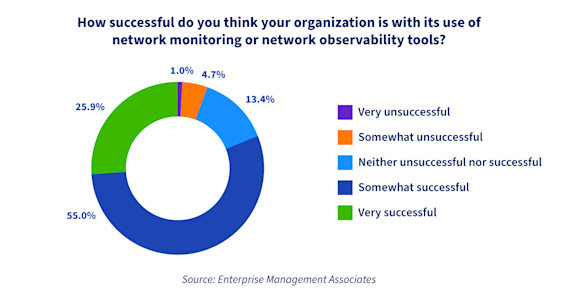
The results also cover other key areas of change, such as:
- Data: Are IT organizations trying to expand the volume and variety of data they collect and analyze with their NetOps tools? Are certain classes of data becoming more important or less important as IT organizations evolve their approach to NetOps?
- Insights: How do network managers draw distinctions between tools that provide access to information (data) and tools that provide insights? What roles do AI and ML play in defining this distinction? What insights are essential to users?
- Tasks and workflows: What tasks are NetOps teams interested in transforming with network observability? How will these workflows change? Troubleshooting, network planning and capacity management, policy configuration and management, traffic engineering, attack mitigation, and cost analytics are all explored.
More from the EMA network observability report
There are two ways to learn about these fascinating results from this first-ever market study.
-
Join Shamus McGillicuddy on November 9 for EMA’s webinar Network Observability: Delivering Actionable Insights to Network Operations
-
Download EMA’s report Network Observability: Delivering Actionable Insights to Network Operations

